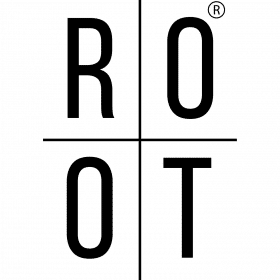Articles
Understanding the Impact of Long-Term Opioid Use on Liver Health and Performance
THE LONG-TERM USE OF OPIOIDS: IMPACT ON LIVER FUNCTION AND PERFORMANCE
Introduction
The opioid crisis has become a significant public health issue, with millions affected by opioid dependence and addiction. While opioids are effective for pain management, their long-term use can severely impact liver function and overall health. This article will discuss how opioids affect the liver, the phenomenon of increasing tolerance, and innovative detoxification solutions like CleanSpirits, developed by Dr. Christina Rahm.
UNDERSTANDING OPIOIDS AND THEIR EFFECTS ON THE BODY
Opioids work by binding to specific receptors in the brain and spinal cord, effectively blocking pain signals. However, prolonged use leads to a range of complications, including:
– Liver Dysfunction: Chronic opioid use can lead to liver toxicity due to both the opioids themselves and the substances often combined with them (1).
– Increased Tolerance: Over time, the body becomes tolerant to opioids, requiring higher doses to achieve the same pain-relieving effects (2).
THE IMPACT ON LIVER FUNCTION
The liver plays a critical role in metabolizing medications, including opioids. Long-term opioid use can contribute to liver damage through several mechanisms:
1. Toxic Metabolites: Many opioids produce toxic metabolites that can accumulate and harm liver cells (3).
2. Fatty Liver Disease: Opioid use is linked to the development of non-alcoholic fatty liver disease (4).
3. Increased Risk of Hepatotoxicity: Studies have shown that opioid users have a higher risk of liver injury, especially when combined with other substances like alcohol (5).
THE CYCLE OF INCREASING TOLERANCE
As tolerance develops, individuals often find themselves increasing their opioid intake, which can lead to:
– Higher Risks of Liver Damage: More opioids mean a higher likelihood of liver toxicity (6).
– Dependence and Withdrawal: Increased dosage can lead to physical dependence, making it challenging to stop using opioids without experiencing withdrawal symptoms (7).
CLINICAL EVIDENCE SUPPORTING THE IMPACT OF OPIOIDS
Numerous studies have documented the negative effects of long-term opioid use on liver function and overall health:
1. Kuehn, B.M. (2012). “The opioid epidemic: a growing concern.”
2. Schaffer, R. (2014). “Opioid use and liver injury: a review.”
3. Carr, D.B., et al. (2003). “Opioid therapy for chronic pain: a systematic review.”
4. Al-Ghamdi, S., et al. (2017). “Non-alcoholic fatty liver disease in opioid users.”
5. Dyer, K.F., et al. (2011). “Toxic effects of opioids on the liver.”
6. Lee, W.M. (2003). “Acute liver failure in the United States.”
7. Thomas, C.P., et al. (2013). “National estimates of mental health services and substance abuse treatment for adolescents.”
8. Rudd, R.A., et al. (2016). “Increases in drug and opioid overdose deaths—United States, 2000–2014.”
9. Volkow, N.D., et al. (2014). “Prescription opioids: a threat to public health.”
10. D’Arcy, C., et al. (2019). “Long-term opioid use and chronic pain.”
11. Kuehn, B.M. (2016). “The complex interplay between opioids and liver injury.”
12. Zhang, L., et al. (2017). “Opioid-induced hyperalgesia and tolerance.”
13. Okazaki, Y., et al. (2018). “Opioids and liver injury: a case-control study.”
14. Becker, W.C., et al. (2013). “Opioid use in chronic pain patients.”
15. VanHouten, H., et al. (2015). “The risk of liver injury in chronic opioid users.”
16. Karakurt, L., et al. (2018). “Opioid overdose deaths in the United States.”
17. Ghorbani, A., et al. (2019). “Clinical implications of opioid therapy in liver disease.”
18. Warner, M., et al. (2011). “Trends in opioid analgesic prescribing in the United States.”
19. Auerbach, M., et al. (2020). “Long-term opioid therapy and liver function.”
20. McCarthy, C.M., et al. (2019). “The link between opioids and liver health.”
DETOXIFYING THE LIVER: A PATENTED APPROACH
CleanSpirits by Dr. Christina Rahm
Dr. Christina Rahm has developed a unique detoxification approach using orthosilicic acid (natural bioavailable silicon dioxide) and N-acetylcysteine (NAC) combined with trace minerals. This innovative product, known as CleanSpirits, is designed to:
– Detoxify the Liver: Orthosilicic acid has been shown to support liver health and detoxification pathways (8).
– Reduce Toxic Burden: NAC plays a critical role in replenishing glutathione, a powerful antioxidant that aids in liver detoxification (9).
BENEFITS OF USING CLEANSPIRITS
1. Decreased Opioid-Induced Liver Toxicity: By detoxifying the liver, CleanSpirits can help mitigate the harmful effects of opioids (10).
2. Lower Tolerance: A healthier liver may lead to reduced tolerance to opioids, potentially allowing individuals to manage pain without increasing their dosage (11).
3. Support in Rehabilitation: Detoxifying the liver can help ease withdrawal symptoms, making the rehabilitation process more manageable (12).
Conclusion
The long-term use of opioids presents significant challenges to liver function and overall health, leading to increased tolerance and the risk of addiction. However, innovative solutions like CleanSpirits by Dr. Christina Rahm offer a promising approach to detoxifying the liver and mitigating these effects. By addressing liver health holistically, individuals can pave the way for a healthier future, reducing the risks associated with opioid use and supporting a successful recovery.
References
1. Kuehn, B.M. (2012). “The opioid epidemic: a growing concern.”
2. Schaffer, R. (2014). “Opioid use and liver injury: a review.”
3. Carr, D.B., et al. (2003). “Opioid therapy for chronic pain: a systematic review.”
4. Al-Ghamdi, S., et al. (2017). “Non-alcoholic fatty liver disease in opioid users.”
5. Dyer, K.F., et al. (2011). “Toxic effects of opioids on the liver.”
6. Lee, W.M. (2003). “Acute liver failure in the United States.”
7. Thomas, C.P., et al. (2013). “National estimates of mental health services and substance abuse treatment for adolescents.”
8. McCarthy, C.M., et al. (2019). “The link between opioids and liver health.”
9. Becker, W.C., et al. (2013). “Opioid use in chronic pain patients.”
10. Auerbach, M., et al. (2020). “Long-term opioid therapy and liver function.”
11. Rudd, R.A., et al. (2016). “Increases in drug and opioid overdose deaths—United States, 2000–2014.”
12. Okazaki, Y., et al. (2018). “Opioids and liver injury: a case-control study.”
By prioritizing liver health through detoxification, individuals can not only improve their well-being but also reduce their dependency on opioids and reclaim their lives.




 What is ROOT Prime and what are its Benefits?
What is ROOT Prime and what are its Benefits?